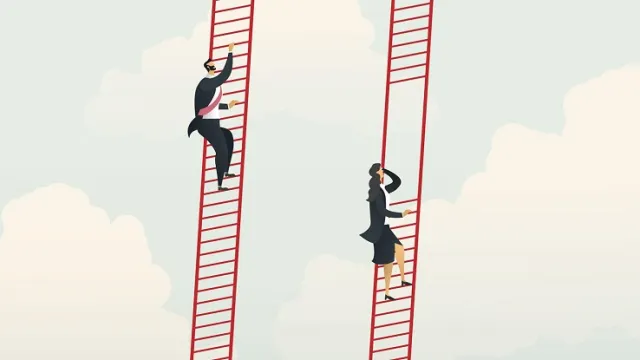What is the place of men in advancing women’s progress?

What is the place of men in advancing women’s progress?
I often see men admiring the Rihannas, Lupitas, Njoki Ndungus, and other influential women in society and wishing for the women in their lives to scale similar heights of accomplishment.
I’ve regularly been agitated and sometimes felt helpless by endless stories of women abused, overlooked, and deliberately marginalized by instruments of power in society.
The point is, a good number of men are rooting for women and girls as they rightfully should. However, many still struggle to find their place in advancing women’s progress and rights.
The struggle is compounded by an increasingly polarized social media environment with extreme discourses from feminists on one side and champions of masculinism on the other side leaving little to no middle ground for a balanced discourse.
Attempts to speak out for and on behalf of women can go wrong in so many ways. Males seen to be promoting women’s agenda are likely to face backlash from fellow men and are handed the simp or wimp red card implying that they are weak for being less self-promoting.
Then there is the question from women; 'who are you to speak to my issue? You don’t have a uterus, no one cat-calls you on the streets every day to work or school, you don’t get married off early just because your family cannot make ends meet, you don’t understand what being a woman entails,’ and many other valid objections.
Among my community, the Luo, there is a saying– Janam ong’iyo gi pier wadgi- superficially translated as ‘residents of the lake are accustomed to each other’s buttocks’ but whose appropriate meaning is, ‘only members of a community can understand their issues better,’ and I believe the same applies to women.
For a man to purport to be at the forefront of women’s issues without the full experience and knowledge of their experiences, he risks mansplaining. This is a situation where a man explains a topic of conversation to a woman who has already demonstrated adequate knowledge of that topic or could reasonably be presumed to know much more about that topic than he does because she is an expert in the field.
Mansplaining has fueled radical stances by women on their physical and online forums like the popular phrase “no uterus no comment” which shut out men from commenting on women’s issues.
Men as allies
Putting all the complexities in context, I believe that the place of men in advancing women’s progress is as allies.
To be better allies we, the men must stop speaking for women. It is not only wrong but also condescending. Women are the experts on their own life experiences and can speak to them on their own.
The women’s rights space has ironically been hijacked by men who counterproductively usurp women’s voices but I believe that whenever we are championing women’s causes, as I do in my line of work, letting women articulate their issues and men taking up other supportive advocacy roles is the right thing to do.
Secondly, listen. As male allies, we need to create more opportunities to listen to women’s stories, acknowledge their experiences, take their concerns seriously, and amplify their voices to fellow men.
If you are that guy that goes: “not all men do that, not all men are the same" on feminist forums that call out men on their crap, stop it! Just listen, it is also a sign of respect for women’s space.
Thirdly, we need to reflect on our own power and privileges as men, what are you able to do only because you are a man? It is crucial to understand how the advantages we have in political leadership, moral authority, social privilege, and control of property impact our lived experiences. This way we are able to extend grace and accept some in return in our interactions with women.
If you forget all three points, just remember to walk the talk of equality in practical daily life events like taking on your full share of house chores and childcare, advocate for gender-equitable policies in the workplace for example, parental leave and transparent pay and finally support and vote for female leaders you believe in during local and national elections. That way fellow men, we will be one step to being better and more pragmatic allies to women’s progress.
Emmanuel Oyier is an Advocacy and Communications Officer at Kisumu Medical and Education Trust and a Public Voices Fellow with The OpEd Project. Email: [email protected] Twitter: @Owyier



